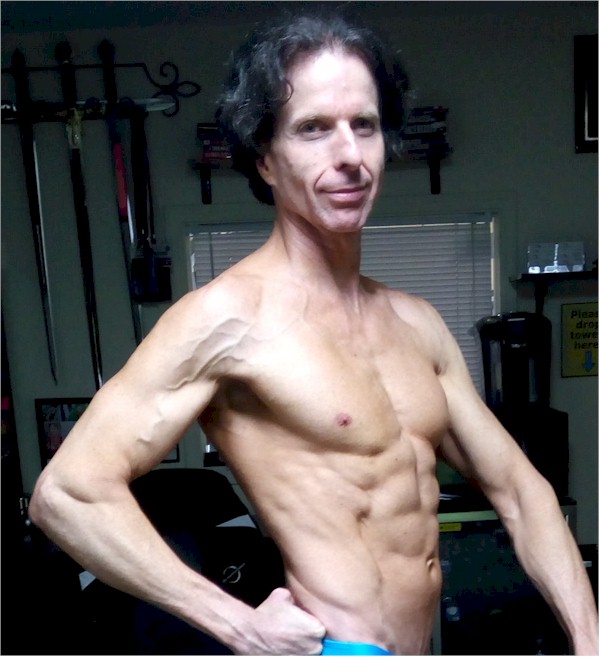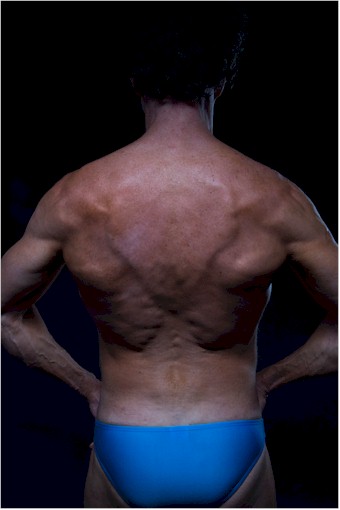1. Good News
2. Product Highlight
3. Brainpower tip
| ||||||||||||||||||||||||||||||||||
|
Wasteful or frivolous spending creeps up on people, and they have a hard time
identifying it. Much less stopping it. For example, the 20-something who always
goes out for lunch doesn't question this expenditure. It seems necessary, but
it's not. This person racks up debt, one lunch at a time. Many people can reduce their discretionary spending 50% or more. Little things add up. Note that I am defining "discretionary" as that pittance you have left over after paying a myriad of federal taxes, plus state and local taxes. The inflation tax affects what's left over. Because of all of the taxes and stealing in general, most of us don't have much to show for our 50+ hour work week. That makes guarding that money all the more important. So how can you reduce frivolous spending? One way is to identify an expenditure (e.g., pedicures) that you can live without for six months. Then just put a 6-month moratorium on it. You keep repeating this until you've hit every expenditure that might be frivolous. To me, this is too taxing emotionally. Too much calculation. Another way is to identify the expenditures you MUST make. It's not a very long list, but make that list. Then for 90 days do not spend on anything that's not on that list. This really gets your spending under control and develops a whole new mindset about money. It takes real discipline, but it's easy because you aren't making a lot of decisions. This way is how one person I know survived three years on a total of $6,000. Yes, he borrowed and played balance transfer games, but he really spent zero beyond what he had to. I mean really had to; he even let his thermostat down to 52 Degrees at night and 60 during the day in winter. It is amazing how much money a person can avoid spending, if properly motivated. People with-8 figure incomes have money problems. The cause is the spending that crept up on them. That's why I say to focus on the spending. Else, you will simply spend what you make from any additional income and never get ahead of the debt. |
5. Security tip
|
Many people today "live" on their smart phones. They use these phones for
all kinds of "should be secured" activities, including online banking and
shopping. They also get "app fever," downloading and installing apps without
really considering if a given app is all that useful. We had this situation with personal computers for many years. Solutions emerged, including:
Your first line of defense is to remember it's a phone. It's not smart, but you should be. Keep in mind your practices for securing a PC and practice those to the extent you can with the phone. Banking via your phone? That's just asking for trouble unless there is an encrypted way to do it and your phone itself is not accessible from a nearby phone. What else is risky? Always ask this question before adding another function to do with your phone. And remember those "anti-virus" programs for the PC? Worse than worthless, they suck down computer resources and provide no protection from anything the OS doesn't already protect you from. A few notable exceptions include Malware Bytes (also available for Android) and Hitman Pro. Don't load your phone up with dubious "protection" software. Instead, be smart about how and where you use your phone. |
6. Health tip/Fitness tips
|
A friend recently asked me, "Do you use light weights?" While I paused
before answering, he said, "I use hand weights. I exercise with them twice a
week and walk on other days." I told him, "I train with weights almost every day. Whether weights are light means something different to every person. Let me put it this way. Those workouts are very hard. I put a lot of tension into the muscles." Notice, I didn't say that I exercise. The difference between exercising and training isn't merely semantics. The goal of training is to elicit the adaptive response. Your body will adapt to the stresses placed upon it. I'm telling my body to produce lots of power quickly and not to store fuel. It adapts by providing a powerful, lean physique. This regimen of training also means my body has adapted to producing fast recovery. I do hard work, and recover much faster than someone without such a regimen. My injuries also heal far more quickly. I suppose if I got sick (it does not happen), I'd recover more quickly from that too. Then there's exercising. I don't know what the goal of this is. People who merely exercise do get some benefit, but mostly they slow down atrophy and decay they should not be experiencing in the first place. The exerciser is "presiding over a decline" (of the body) while the trainer is trying to elevate himself/herself. Talk to someone who trains, and that person is almost always seeking better athletic performance or has a physique goal that is extraordinary. Talk to someone who exercises, and that person usually wants to "be more toned" (whatever that means) or "lose a little weight" (probably means become leaner). This mindset of "exercising" is self-limiting. If you've been thinking that way, you've probably experienced frustration. Years ago, a boss of mine complained that he was getting fatter. "Must be age catching up with me." So I asked him what he was doing to get leaner. First, he scaled down breakfast to just a plain bagel. This means he started his day training his body to adapt to a nutrition shortage, in addition to stimulating endocrine modification with this highly glycemic "food." Second, he jogged every morning. Jogging is a low-intensity activity that trains your body to reduce lean tissue (e.g., muscle) and store fuel (e.g., fat). Gee, I can't imagine why he was getting fatter. |
|
|
| |
The solution, which I suggested he try for 90 days, was two-fold:
He tried the duck walking and said that was for the birds. No joke, he actually said that. I said, "I suppose you mean for the ducks. That was a pun you made, right?" No, he just meant he totally hated it. Too much work. He did, however, make the breakfast change. And the fat slowly started to melt away. His basic problem was he wanted the easy fix. Hey, eat just a bagel--that's easy. Go jogging, another easy "solution" but it has the opposite of the intended effect. Eating a bigger breakfast--that's easy. Grueling, high-intensity exercise is hard, and that's why it works. But to him, it wasn't worth doing because it was hard. To him, doing worthless exercise was worth doing, because it was easy. By contrast, my friend Joe consistently trains hard and looks fantastic for a man who is 30 years old. Joe has a "do it right and make it count" attitude toward training. He doesn't mess around, so for 30 he looks awfully good. I will note here that Joe is 67 years old. A basic principle that everyone would do well to remember is your body adapts to the stresses placed on it. Thus, any kind of easy exercise has no adaptive value (there's no real stress). That said, let's keep this in perspective:
Whoa, what happened there? You might be asking, "Isn't hard exercise what you've been recommending?" No, it's not. What I am recommending is systematic training. Don't confuse exercise with training. Go back to that basic principle of adaptation. But also note what eight-time Mr. Olympia Lee Haney says about training: "You want to stimulate, not annihilate, your muscles." Mr. Haney is just shy of 60 as I write this, and he looks really good (even better than Joe). He was the last "classic look" Mr. Olympia, and he is living injury-free. No hip or knee replacements, no chronic pain. There are limits to what you can put your body through, before your efforts do more harm than good. Stimulating the adaptive response is hard work, which is why relatively few people do it. But it's not work that's hard on you. Intensity is the key. You have to put a great deal of tension into the target muscles for a short duration. That signals your body to "build a race car". That means it is going to go for "more powerful engine and less fuel storage" to adapt to the demand of a high intensity (or burst mode) demand. Just like a quarter mile dragster. Your body will adjust various factors so that it produces more power. Take a look at the world's greatest athlete, Usain Bolt. He doesn't exercise. He trains. And with zero "cardio." His whole training program is based on intensity. Which makes sense, since his sport (sprinting) requires massive energy expenditure in a short time. He is the fastest sprinter in human history and has a lean, powerful physique that comes only from systematic training. | |
|
| |
At
www.supplecity.com, you'll find plenty of informative, authoritative
articles on maintaining a lean, strong physique. It has nothing to
do with long workouts or impossible to maintain diets. In fact:
| |
7. Factoid
|
Hospital errors kill nearly 200,000 more Americans each year than all cancers combined do. |
8. Thought for the Day
| Do you "have an opinion like everybody else" or have you taken the time to understand a given topic so you know what you are talking about? Which way do you think is better? |
Please forward this eNL to others.
Authorship
The views expressed in this e-newsletter are generally not shared by criminals, zombies, or brainwashed individuals.Except where noted, this e-newsletter is entirely the work of Mark Lamendola. Anything presented as fact can be independently verified. Often, sources are given; but where not given, they are readily available to anyone who makes the effort.
Mark provides information from either research or his own areas of established expertise. Sometimes, what appears to be a personal opinion is the only possibility when applying sound logic--reason it out before judging! (That said, some personal opinions do appear on occasion).
The purpose of this publication is to inform and empower its readers (and save you money!).
Personal note from Mark: I value each and every one of you, and I hope that shows in the diligent effort I put into writing this e-newsletter. Thank you for being a faithful reader. Please pass this newsletter along to others.


